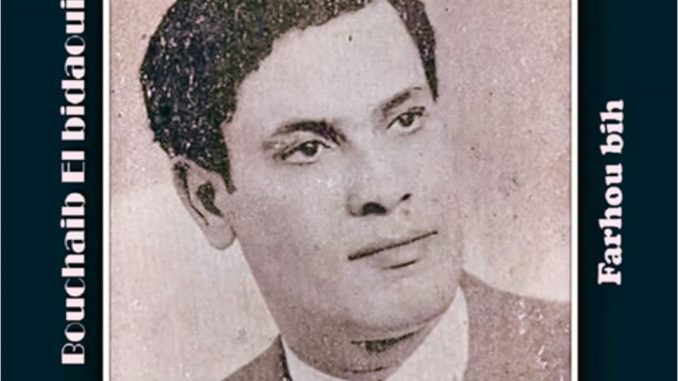
In its spring edition, from October 17th to November 3rd, the musical festival of arts and ideas “Arabofolies” pays a special tribute to the art of the Aïta and to one of its most famous sheikhs, the late Bouchaïb Al Bidaoui, on October 22nd at the Arab World Institute.
A special meeting will be organised to celebrate Bouchaïb Al Bidaoui, one of the pillars of the Aïta Al-Marsaouiya, as part of the Thursdays of the Arab World Institute. This meeting will be hosted by the poet, writer and researcher Hassan Najmi, who is also the author of more than twenty texts (articles, novels and poems) on this subject, including “The singing, oral poetry and traditional music of the Aïta in Morocco”. He will be accompanied by Driss El Yazami, President of the Council of the Moroccan Community Abroad, with the participation of Khalid Bouazzaoui, one of the pillars of the group “Oulad Al-Bouazzaoui”, heirs to the art of the late Bouchaïb Al Bidaoui.
This debate around the Aïta will be followed by the screening of the documentary “The Blues of the Chikhates”, directed by Ali Essafi. This film depicts the social and urban transformations that have affected Moroccan society and led to the development of the Aïta and its widespread diffusion, particularly with the emergence of the “Caïds” in rural and agricultural areas such as Abda, Chaouia and Doukkala, where the Aïta was broadcast with the voice of the Chikhates, revealing the realities of a society living between tradition and modernity. Knowing this type of song differs from one region to another, through various names and under various appellations, notably the Aïta Al-Hasbaouiya, Al-Mersaouiya, Al-Za’ariya, Al-Chiyadmiya, Al-Hawziya, Al-Mellaliya, Al-Jabliya and Al-Khribguiya.
According to the presentation document of the Arab World Institute, “this heritage, which suffered during a certain period of exclusion and ostracism, has been revived thanks to efforts in the field of conservation and documentation, the credit for which goes to certain researchers and musicians, including Hassan Najmi, the Oulad Al-Bouazzaoui ensemble, Oulad Ben Aguida and others.

Be the first to comment